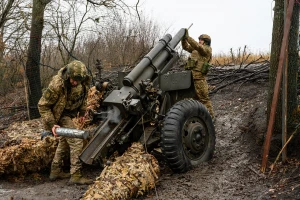
Cyberattacks, mirror actions, lawsuits: EU mulls Russia's response to asset confiscation – media
The EU countries fear mirror actions, lawsuits and cyberattacks from Russia after the confiscation of Russian assets, as well as damage to reputation among investors
Politico reported the information, citing its own sources.
"For months, European Union officials have been looking for ways to use assets worth around €200 billion that the bloc immobilized after Vladimir Putin's invasion of Ukraine in February 2022 but it keeps throwing up new problems. Now, some governments are hatching a plan to try and achieve the same outcome without sealing the fate of the assets just yet. The G7 group of industrialized nations are considering a proposal to use these assets as collateral for bank loans that can finance Ukraine’s reconstruction," the outlet writes, citing officials involved in the proceedings.
Belgian conservative MEP Johan Van Overtveldt, who put forward the idea in an interview with Politico last week, said it would put pressure on Putin to end the war and come to the negotiating table.
Meanwhile, concerns are growing in the EU about retaliatory steps from Moscow, including potential cyberattacks on EU countries.
Several European officials involved in the discussions have warned that asset confiscation could provoke a backlash against European assets in Russia.
This is on top of warnings that it could tarnish the reputation of the eurozone, making it less attractive to investors, the sources said.
"We are entering uncharted waters," said an EU diplomat, speaking on condition of anonymity. "Anyone would be worried about the potential consequences of asset confiscation," he added.
Europe fears that Moscow could retaliate by filing a flurry of complaints against Euroclear, the international depository that holds most of Russia's reserves in Europe.
"An institution like Euroclear is a very systemic financial institution," Belgian Finance Minister Vincent Van Peteghem said.
"We should ... try to avoid an impact [of Russian asset confiscation] on financial stability," he said.
The EU diplomat also warned that Russia could step up its cyberattacks on Western financial institutions.
The latest on the confiscation of Russian assets
On November 30, the US Senate introduced a bill to confiscate Russian assets. On January 11, the Biden administration supported the confiscation of Russian assets for transfer to Ukraine.
Meanwhile, the European Commission has a plan to raise €15 billion from Russia's frozen assets to provide financial assistance to Ukraine.
At the same time, Russia has estimated that the West could lose assets and investments worth at least $288 billion if it confiscates frozen Russian assets to help rebuild Ukraine, and said Moscow would retaliate.
On January 22, reports indicated that the EU foreign ministers were approaching a solution to the issue of how to use the frozen Russian assets.
On January 23, Belgian Ambassador to the United States Jean-Arthur Régibeau said that Western countries should make a collective decision to confiscate frozen Russian assets, most of which are stored in the Brussels-based Euroclear settlement center.
On January 24, a US Senate committee approved a bill to confiscate Russian assets and transfer them to Ukraine.
On January 30, the Political Affairs Committee of the Parliamentary Assembly of the Council of Europe adopted a draft resolution that provides for the confiscation of frozen Russian assets and their transfer to a new fund for Ukraine's recovery.
- News













































